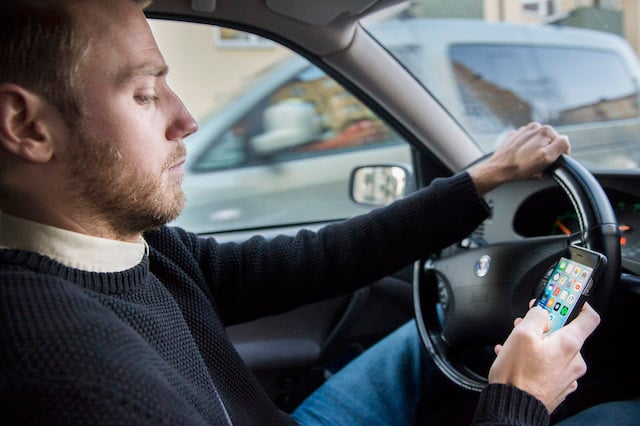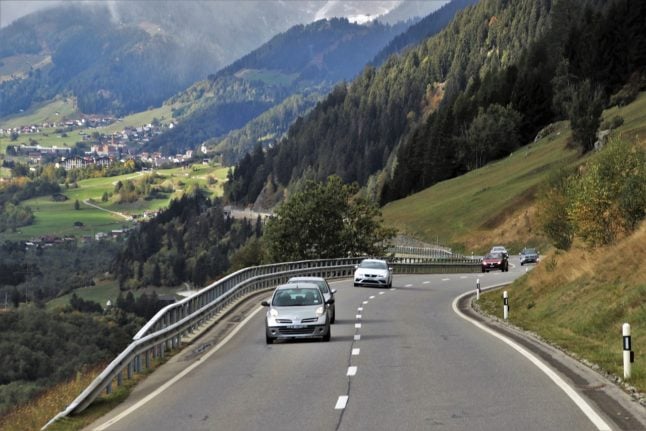TRAFFIC
Texting behind the wheel: Soon illegal in Sweden, too?
While most people would probably agree that texting and driving is a bad idea, using a handheld mobile phone behind the wheel is still pretty much perfectly legal in Sweden. But that could soon be about to change.
Published: 26 April 2017 14:31 CEST

Soon illegal? Photo: Erik Nylander/TT
Sweden remains one of very few European countries that still allow mobile phone use while driving, without using hands-free.
A 2016 survey by the Swedish Transport Agency (Transportstyrelsen) found that 37 percent of Swedes text while driving. For those aged 18-30, the figure was 56 percent.
The current law, which was introduced in 2013, only bans drivers from using their phones in a manner that could be deemed “detrimental” to their driving. Whether someone's driving has been “detrimental” due to their mobile phone usage is down to the police to determine, but that has proven difficult.
Transportstyrelsen now wants to introduce a ban on mobile phone usage except with hands-free, and was backed by the Swedish government at a press briefing on Tuesday.
“It's hard for the police to determine whether it's the mobile phone usage that's resulted in the dangerous traffic behaviour, and it's hard to prove,” said Transportstyrelsen project manager Therese Malmström.
Minister for Infrastructure Anna Johansson said there were two good reasons for introducing a ban: the first being that Sweden would then live up to the Vienna Convention on traffic safety, which recommends a ban on handheld mobiles while driving. The second reason would be about clarity.
“I've met many people who think it is permitted to drive while texting or using your mobile in other ways. That is not the case,” Johansson said.
The change proposed by Transportstyrelsen reads, in full: “When driving on a road with a motor vehicle, the driver is allowed activities such as using a mobile phone and other communications equipment only if it is not detrimental to the driving of the vehicle. As such, the driver is not allowed to use a mobile phone in such a way that he or she holds it in his or her hand.”
Url copied to clipboard!



 Please whitelist us to continue reading.
Please whitelist us to continue reading.